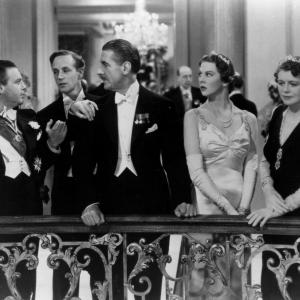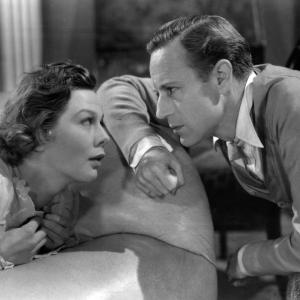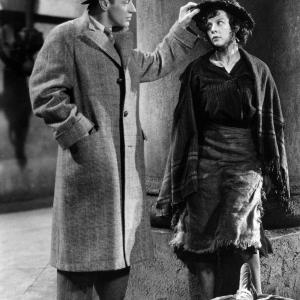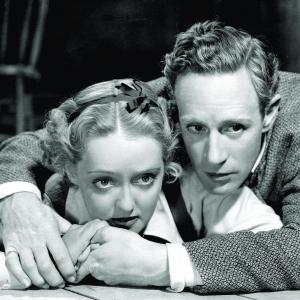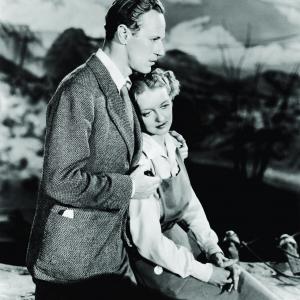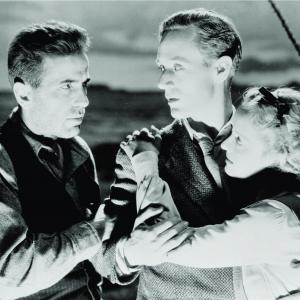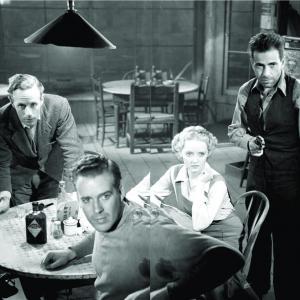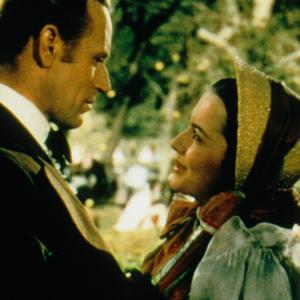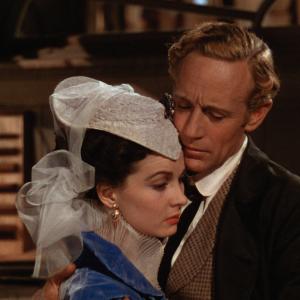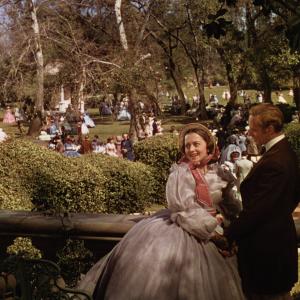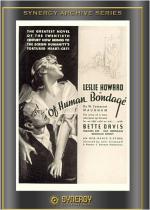Leslie Howard Net Worth

Leslie Howard Net Worth is
 $12 Million
$12 Million
Leslie Howard Bio/Wiki, Net Worth, Married 2018
Leslie Howard (3 April 1893 – 1 June 1943) was an English stage and film actor, director, and producer. Probably best remembered for playing Ashley Wilkes in Gone with the Wind (1939), his other films include Berkeley Square (1933), Of Human Bondage (1934), The Scarlet Pimpernel (1934), The Petrified Forest (1936), Pygmalion (1938), Intermezzo (1939), "Pimpernel" Smith (1941) and The First of the Few (1942).Howard's Second World War activities included acting and filmmaking. He was active in anti-German propaganda and reputedly involved with British or Allied Intelligence, which may have led to his death in 1943 when an airliner on which he was a passenger was shot down over the Bay of Biscay, sparking conspiracy theories regarding his death. | Full Name | Leslie Howard |
| Date Of Birth | April 3, 1893, Forest Hill, London, United Kingdom |
| Died | June 1, 1943, Bay of Biscay |
| Place Of Birth | Forest Hill, London, England, UK |
| Height | 5' 10½" (1.79 m) |
| Profession | Actor, Producer, Director |
| Education | Alleyn's School, Dulwich College |
| Spouse | Ruth Evelyn Martin (m. 1916–1943) |
| Children | Ronald Howard, Leslie Ruth Dale-Harris |
| Parents | Ferdinand Steiner, Lilian Blumberg |
| Siblings | Arthur Howard, Irene Howard, Jimmy Howard, Dorice Howard |
| Awards | Volpi Cup for Best Actor |
| Nominations | Academy Award for Best Actor |
| Movies | Gone with the Wind, "Pimpernel" Smith, The Petrified Forest, Pygmalion, Of Human Bondage, The Scarlet Pimpernel, Intermezzo, The First of the Few, The Animal Kingdom, It's Love I'm After, Romeo and Juliet, British Agent, 49th Parallel, Berkeley Square, Outward Bound, Smilin' Through, A Free Soul, Ne... |
| Star Sign | Aries |
| Title | Salary |
|---|---|
| 49th Parallel (1941) | £2,000 (for 2 weeks) |
| # | Quote |
|---|---|
| 1 | The truth is that to enjoy acting one must be an exhibitionist at heart, one must revel in those exposures of the emotions which would be agonizing to a shy or reserved person. All the great actors have been and are exhibitionists. It is easy and pleasurable for them to shout, to weep, to tear their hair, to laugh, to make love. They enjoy it and they make their audience enjoy it. They are the ideal actors. As a boy the possibility of being an actor never even occurred to me. Nor could it have occurred to anybody who knew the shy and inarticulate youth that I was. I wanted to write. I felt I could express myself on paper; alone in a room I felt articulate and creative. But I was also lazy, a thing a writer never dare be. Application is, I am convinced, the first rule for authors. Then, mysteriously, a part in a play offered itself -- at time when to earn a living was a prime motive of existence. And then another part in another play. And gradually the miracle took place. The metamorphosis of a nervous, inhibited, agoraphobic individual who had other ambitions altogether into a quite successful actor. |
| 2 | [July 1933] I can't think of anything more exciting than trying to be an actor. |
| 3 | [July 1932 interview with Schenectady Gazette regarding persistent rumors of leaving film] Statements derogatory to talkies credited to me are absurd. I like movies and their potentialities. I think Hollywood is making definite strides forward when it produces a 'Grand Hotel' and a 'Strange Interlude'. The sole argument I have had with the producers concerned my own parts. I make my living by public approval of my work, and can hardly be blamed, I am sure, for having my own ideas as to the roles I can do best. That these differences are adjusted is indicated by my presence here. A great deal of the misunderstanding which has arisen comes from my recent departure from Hollywood. It was assumed that I would not be back. That is silly. I never expected to give up the stage, but never again do I plan to be on it exclusively. I intend to commute between New York and Hollywood as long as both mediums still want me. Any actor hates to leave the stage, for there he is supreme, the most important individual. On the screen he takes second place to the director. This is essential in the film art, and the actor agrees, but he can hardly be blamed, can he, for returning to his first love? I intend to return to the stage, periodically, believing that my experience in each medium will help me in the other. The screen gives me a lot of pleasure because of its peculiar and exclusive impressionistic power. Dialog, words, are all important on the stage. On the screen words are only part of a composite combination with visual factors which give remarkable effect different from those possible on the stage. In the small, routine, program pictures their appearance indicates the expansion we many expect of the screen art in coming years. |
| 4 | I am a tremendous believer in the power of broadcasting. ... I don't believe anything is too good for the public. ... In my own experience I have proved that the cinema public is as ready to patronize the work of Bernard Shaw, the music of William Walton and film technique at its most subtle. |
| 5 | In the love of a good woman you have everything, all the wonders of the ages, the brown skinned girls who inflame your senses with their play; the cool, yellow-haired women who entice and escape you; the gentle ones who serve you; the slender ones who torment you; the mothers who bore and suckled you;--all women whom God created out of the teeming fullness of the earth are yours in the love of one women. |
| 6 | I looked around for some kind of contribution I could make -- some kind of war work I could do. For a long time it was very difficult. There were millions of fellows about my age all looking for the same thing. Desperate, I went to see Duff Cooper and asked him if I should go back in the army. I was in the Northamptonshire Yeomanry in the last war. It's mechanized now, but I daresay I could polish a tank as well as groom a horse. He said, "You should stick to your own job. I think you can be more useful at that. And gradually I have, so to speak, fallen on my wartime feet. |
| 7 | Don't think I am not homesick for America. I say 'homesick' advisedly because I am a man with two homes -- America, which gave me hospitality for many happy years, and where my daughter was born; and my native England. |
| 8 | Britain's destiny, on the other hand, has been to uphold tolerance in religion, thought, speech, and race--the mainspring of democracy. We have still far to travel on the road to true democracy, but only the Germans have made no progress in this direction. Britain, with her great gifts and strange inconsistencies had helped populate five continents and shown that the white man and the colored man can live in peace together. We have also taken the Roman ideal of just administration, the Greek ideal of democracy and freedom of art, and the French tradition of the family unit, along with the Norse courage and loyalty and the Christian faith. Like all people, we have made some mistakes and have committed some crimes during our history, but we can say that we have built something worthy of our defense. We can look at our record without shame. |
| 9 | What the actor is in private life, he is to a large extent on the stage, because he cannot conceal himself and his true personality from his audience. |
| 10 | I feel the pressure from other people coming at me. When shots don't fall for one person I think it is a domino effect. |
| 11 | I hate the damn part. I'm not nearly beautiful or young enough for Ashley, and it makes me sick being fixed up to look attractive. |
| 12 | [Describing one of his Gone with the Wind (1939) costumes]: I look like that sissy doorman at the Beverly Wilshire, a fine thing at my age. |
| # | Fact |
|---|---|
| 1 | In the parallel universe featured in Quest for Love (1971), Howard was still alive and still acting in 1971 as World War II never occurred. |
| 2 | Self-described laissez-faire Liberal and Democrat. |
| 3 | With Adrian Brunel, founded production company Minerva Films. |
| 4 | On February 24th 1920, he changed his name from Leslie Howard Steiner to Leslie Howard, by deed poll, which was enrolled in the Central Office of the Supreme Court of Judicature on March 3rd 1920. |
| 5 | Leslie's father, Ferdinand "Frank" Steiner, was born on April 28th 1862 in Szigetvar, Hungary, to Cacilie Bodansky and Berthold Samuel Steiner, who were both Jewish, and subjects of Austria. Leslie's mother, Lilian (née Bloomberg), was English. Lilian's own paternal grandfather, Ludwig Alexander George Blumberg, was a German Jewish immigrant, while Lilian's other grandparents were all of English origin. |
| 6 | Leslie first began writing when he was at Mr Bolland's prep-school in Upper Norwood (England). One Christmas term a play was performed by the schoolboys at Mr Bolland's, written by Leslie -- in Latin, of all things -- at the age of thirteen. |
| 7 | In August 1936, Leslie canceled airplane reservations from Hollywood to New York because an astrologer told him it would be unlucky to fly that week. |
| 8 | Among other illnesses during his long career, he had laryngitis in May 1924 & December 1930, appendicitis May 1928, and an infected knee in July 1935. |
| 9 | According to a story in the "Southeast Missourian" newspaper, Howard could be a difficult man to track down, wandering off the set between takes. One day Tay Garnett, while directing Stand-In (1937), finally had several men look for him when he could not be found; they found him and, with the gentleness due a star, tied him up, clapping leg irons on him. Garnett put him on "probation", but gave Howard a cowbell and ordered him to bong the bell when on a stroll. It wasn't long before a scene was ready for shooting, but, again, no Howard. Soon enough they heard the cowbell, though, in a distant corner of the sound stage up in the catwalks. Converging on the sound, they found only the bell with a string attached. They traced the string over rafters back to the lighted set where "Stand-In" was suppose to be shooting. There sat Howard, yanking at the string, plaintively indignant about the absence of director Garnett. |
| 10 | 1939 'Reading Eagle' newspaper purported Howard was a "buttermilk addict.". |
| 11 | In 1936 attended as keynote speaker an American Foundation for the Blind (AFB) reception to promote Talking Book machines. |
| 12 | Got into a blackout automobile accident in the winter of 1939. Howard's jaw was fractured, three front teeth broken, and his forehead and chest were injured. |
| 13 | Leslie was in a relationship with Violette Cunnington from 1938 until her death in 1942 of cerebral meningitis. |
| 14 | Disclosed in 1944, Leslie Howard left an estate totaling $251,000. The majority was held in trust to his widow, son and daughter. Howard had also left a Beverly Hills home to his secretary, Violette Cunnington (with whom he was rumored to be having an affair), but she had died six months before his own death. |
| 15 | On board his fated plane was Quirinus Tepas (pilot), D. de Koning (second officer), Cornelis van Brugge (radio operator), Engbertus Rosevink (flight engineer); also Francis German Cowlrick (elderly engineer), Wilfrid Jacob Berthold Israel (British Secret Service agent), Gordon Thompson Maclean (British Foreign Office), Ivan James Sharp (mining engineer; specialist in tungsten), Tyrell Milmay Shervington (Lisbon manager of Shell-Mex Corporation), Kenneth Stonehouse (Washington correspondent for Reuters), Evelyn Stonehouse (wife of Kenneth Stonehouse), Cecilia Amelia Falla Paton (on way to secretarial job at a consulate in England), Rotha Violet Lettie Hutcheon (mother of Carola and Petra), Petra Hutcheon (11 years old), Carola Hutcheon (2 years old), and Alfred Tregear Chenhalls (his business manager and traveling companion). |
| 16 | In 1934, he accepted the Oscar for "Best Actor in a Leading Role" on behalf of Charles Laughton, who was not present at the awards ceremony. |
| 17 | His death was mentioned in the World War II film Bright Victory (1951). |
| 18 | Humphrey Bogart was so grateful at Howard's insistence that he repeat his stage performance in the film of The Petrified Forest (1936), the role that proved to be his big break in movies, that he named his daughter Leslie in Howard's honor. |
| 19 | Uncle of actor Alan Howard. |
| 20 | Father of Leslie Ruth Dale-Harris (1924-2013). At 17 years old, she married Robert Dale-Harris, a chartered accountant. They lived in Toronto, Canada, with three children. In 1960 she published a biography of her father, "A Quite Remarkable Father". |
| 21 | Nephew of director Wilfred Noy. |
| 22 | Oldest of five siblings: Dorice Howard; casting director Irene Howard; Jimmy Howard; and actor Arthur Howard. |
| 23 | Father of actor Ronald Howard, who appeared with him in 'Pimpernel' Smith (1941). |
| 24 | Was on board Flight #777 of KLM Royal Dutch Airlines--a 1936 Douglas Aircraft «Isis»--with four crew members and 12 other passengers on a regular flight from Bristol to Lisbon when it was shot down by German fighter planes over the Bay of Biscay. |
Actor
| Title | Year | Status | Character |
|---|---|---|---|
| The Gentle Sex | 1943 | 'Observations of a Mere Man' spoken by / Narrator (voice) | |
| In Which We Serve | 1942 | Narrator (voice, uncredited) | |
| Spitfire | 1942 | R.J. Mitchell | |
| 49th Parallel | 1941 | Philip Armstrong Scott | |
| 'Pimpernel' Smith | 1941 | Professor Horatio Smith | |
| Common Heritage | 1940 | Short | Narrator (voice) |
| Gone with the Wind | 1939 | Ashley - His Son | |
| Intermezzo: A Love Story | 1939 | Holger Brandt | |
| Pygmalion | 1938 | Professor Henry Higgins | |
| Stand-In | 1937 | Atterbury Dodd | |
| It's Love I'm After | 1937 | Basil Underwood | |
| Romeo and Juliet | 1936 | Romeo - Son to Montague | |
| The Petrified Forest | 1936 | Alan Squier | |
| The Scarlet Pimpernel | 1934 | Sir Percy Blakeney | |
| British Agent | 1934 | Stephen 'Steve' Locke | |
| The Lady Is Willing | 1934 | Albert Latour | |
| Of Human Bondage | 1934 | Philip Carey | |
| Berkeley Square | 1933 | Peter Standish | |
| Captured! | 1933 | Captain Fred Allison | |
| Secrets | 1933 | John Carlton | |
| The Animal Kingdom | 1932 | Thomas 'Tom' Collier | |
| Smilin' Through | 1932 | Sir John Carteret | |
| Reserved for Ladies | 1932 | Max Tracey | |
| Devotion | 1931 | Trent | |
| Five and Ten | 1931 | Berry Rhodes | |
| A Free Soul | 1931 | Dwight Winthrop | |
| Never the Twain Shall Meet | 1931 | Dan | |
| Outward Bound | 1930 | Tom Prior | |
| Bookworms | 1920 | Short | Richard |
| Five Pounds Reward | 1920 | Short | Tony Marchmont |
| The Lackey and the Lady | 1919 | Tony Dunciman | |
| The Happy Warrior | 1917 | Rollo | |
| The Heroine of Mons | 1914 | Short |
Producer
| Title | Year | Status | Character |
|---|---|---|---|
| The Lamp Still Burns | 1943 | producer | |
| The Gentle Sex | 1943 | producer | |
| Spitfire | 1942 | producer | |
| 'Pimpernel' Smith | 1941 | producer | |
| Intermezzo: A Love Story | 1939 | associate producer | |
| The Temporary Lady | 1921 | Short producer | |
| Too Many Cooks | 1921 | Short producer | |
| Bookworms | 1920 | Short producer | |
| Five Pounds Reward | 1920 | Short producer | |
| The Bump | 1920 | Short producer | |
| Twice Two | 1920 | Short producer |
Soundtrack
| Title | Year | Status | Character |
|---|---|---|---|
| 'Pimpernel' Smith | 1941 | "There's A Tavern in the Town", uncredited | |
| Intermezzo: A Love Story | 1939 | performer: "Intermezzo" 1936 | |
| Stand-In | 1937 | performer: "That Old Feeling" 1937 - uncredited | |
| The Scarlet Pimpernel | 1934 | "God Save the King!" 1744, uncredited | |
| Berkeley Square | 1933 | performer: "John Brown's Body" - uncredited |
Director
| Title | Year | Status | Character |
|---|---|---|---|
| The Gentle Sex | 1943 | ||
| Spitfire | 1942 | ||
| 'Pimpernel' Smith | 1941 | ||
| Pygmalion | 1938 |
Writer
| Title | Year | Status | Character |
|---|---|---|---|
| From the Four Corners | 1942 | Short |
Self
| Title | Year | Status | Character |
|---|---|---|---|
| War in the Mediterranean | 1943 | Documentary short | Narrator (voice) |
| The White Eagle | 1942 | Documentary short | Narrator (voice) |
| From the Four Corners | 1942 | Short | Himself (as A Passer-By) |
| Breakdowns of 1936 | 1936 | Short | Himself |
| Hollywood on Parade No. B-13 | 1934 | Short | Himself |
Archive Footage
| Title | Year | Status | Character |
|---|---|---|---|
| Leslie Howard: The Man Who Gave a Damn | 2016 | Documentary | Himself (uncredited) |
| Diálogos de cine | 2008 | TV Movie | Sir Percy Blakeney The Scarlet Pimpernel |
| Waiting for Hockney | 2008 | Documentary | Sir Percy Blakeney The Scarlet Pimpernel |
| Why Be Good? Sexuality & Censorship in Early Cinema | 2007 | Documentary | Himself |
| Broadway: The American Musical | 2004 | TV Mini-Series documentary | Professor Henry Higgins (in 'Pygmalion') |
| Complicated Women | 2003 | TV Movie documentary | Himself (uncredited) |
| Omnibus | 2001 | TV Series documentary | Himself |
| Film Breaks | 1999 | TV Series documentary | |
| Glorious Technicolor | 1998 | TV Movie documentary | Himself |
| The Silver Screen: Color Me Lavender | 1997 | Documentary | Himself |
| Bogart: The Untold Story | 1996 | TV Movie documentary | Actor in 'The Petrified Forest' (uncredited) |
| Biography | 1994 | TV Series documentary | |
| The Making of a Legend: Gone with the Wind | 1988 | TV Movie documentary | Himself - Cast Member in 'Gone with the Wind' |
| South of Reno | 1988 | Clip from 'Of Human Bondage' (uncredited) | |
| Going Hollywood: The '30s | 1984 | Documentary | |
| Ingrid | 1984 | Documentary | Himself, clip from 'Intermezzo' (uncredited) |
| Hollywood Out-takes and Rare Footage | 1983 | Documentary | Himself (uncredited) |
| The British Greats | 1980 | TV Series | Himself |
| Hollywood: The Selznick Years | 1969 | TV Movie documentary | Actor 'Intermezzo' (uncredited) |
| Hollywood My Home Town | 1965 | Documentary | Himself |
| MGM Parade | 1955 | TV Series | Dwight Winthrop in 'A Free Soul' |
| Some of the Best | 1943 | Documentary | Dwight Winthrop in A Free Soul (uncredited) |
Won Awards
| Year | Award | Ceremony | Nomination | Movie |
|---|---|---|---|---|
| 1960 | Star on the Walk of Fame | Walk of Fame | Motion Picture | On 8 February 1960. At 6550 Hollywood Blvd. |
| 1946 | Prize | Locarno International Film Festival | Most Entertaining Film | 'Pimpernel' Smith (1941) |
| 1938 | Volpi Cup | Venice Film Festival | Best Actor | Pygmalion (1938) |
Nominated Awards
| Year | Award | Ceremony | Nomination | Movie |
|---|---|---|---|---|
| 1939 | Oscar | Academy Awards, USA | Best Actor in a Leading Role | Pygmalion (1938) |
| 1938 | Mussolini Cup | Venice Film Festival | Best Foreign Film | Pygmalion (1938) |
| 1934 | Oscar | Academy Awards, USA | Best Actor in a Leading Role | Berkeley Square (1933) |
